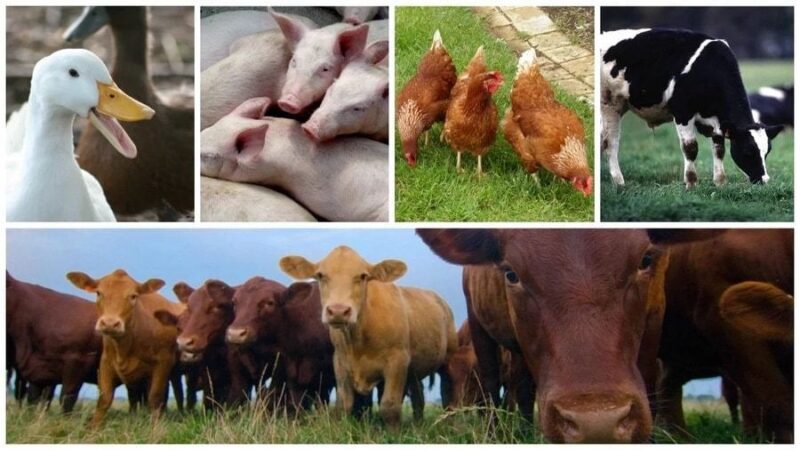How to Farm Livestock Successfully
Agriculture is an essential part of our lives, and it encompasses farming, poultry keeping, cattle rearing, and growing crops. It is an industry that is crucial to the economic development of many countries across the world. Livestock farming is an intensely valuable aspect of agriculture, and it encompasses various aspects of animal husbandry, from the breeding, mating, and caring of these animals to the marketing of their products. In this post, I will explore the importance of livestock farming and conventional farming methods.
Livestock Farming
Livestock farming is the process of raising domestic animals, such as cattle, pigs, sheep, and goats, for commercial purposes. It plays an integral role in food production and the creation of agricultural products. The livestock sector contributes significantly to the economy and provides income and employment for millions of people worldwide.
There are various reasons why livestock farming is essential; one of the main reasons is its contribution to food security. Livestock farming raises animals for food, such as meat, eggs, and milk. This sector provides a source of protein for millions of people worldwide. Additionally, it provides many other essential products, such as wool, leather, and fertilizers, that are necessary for human sustenance.
Livestock farming also contributes to the agricultural industry by providing jobs for millions of people worldwide. Farmworkers, veterinarians, and other professions in the livestock sector all play an integral role in the system, contributing to the development of the economy.
Conventional Farming Methods
Conventional farming is a system of farming that utilizes modern methods and technology to maximize crop yields and profits. This method utilizes synthetic fertilizers, pesticides, and herbicides to produce more significant yields of crops. The main objective of conventional farming is to produce, store, and distribute crops efficiently and ensure higher profits for the farmer.
Although conventional farming has many benefits, it also has its drawbacks. One major criticism of conventional farming is the use of synthetic fertilizers, pesticides, and herbicides. These chemicals can cause significant harm to the environment by polluting soil and water sources. Additionally, they can harm beneficial insects and, in some cases, even human health.

Conventional farming methods also require large amounts of water and energy, which can deplete natural resources and contribute to global warming. Additionally, the use of monoculture, the practice of planting one crop continuously in the same field, can lead to a depletion of natural resources and soil degradation.
Sustainable Farming
In response to the growing concerns over the environmental impact of conventional farming, many farmers have started to adopt sustainable farming methods. Sustainable farming utilizes natural methods and techniques to produce crops and livestock without harming the environment.
Sustainable farming methods include practices such as crop rotation, organic farming, agroforestry, and conservation farming. These methods seek to maximize the use of natural resources and reduce the need for synthetic fertilizers, pesticides, and herbicides.
Sustainable farming is an attractive alternative to conventional farming as it provides long-term benefits and is cost-effective. It is also highly beneficial for the environment as it reduces the harmful effects of farming on the environment.
Conclusion
Agriculture is an indispensable sector that supports the economy, and livestock farming plays a crucial role in food production and employment. Conventional farming methods have many benefits, but they also have several drawbacks. Sustainable farming methods have emerged in response to these drawbacks and are a highly attractive alternative.
In conclusion, it is essential to recognize the importance of agriculture and the role of livestock farming in the global economy. The adoption of sustainable farming methods will contribute significantly to the economy, reduce the negative effects of conventional farming on the environment, and provide more environmentally friendly methods of food production.
Source image : maishanivita.blogspot.com

Source image : upvey.com

Source image : www.farmpractices.com




